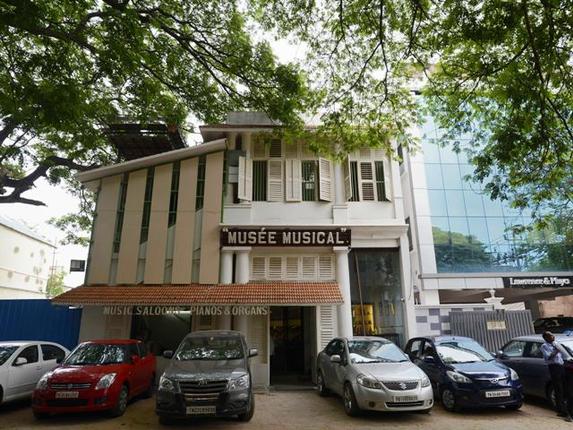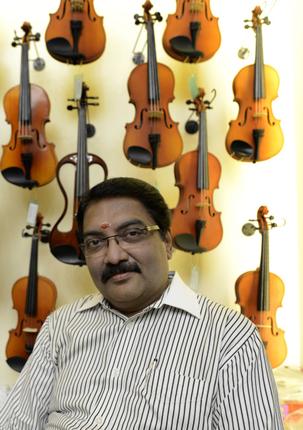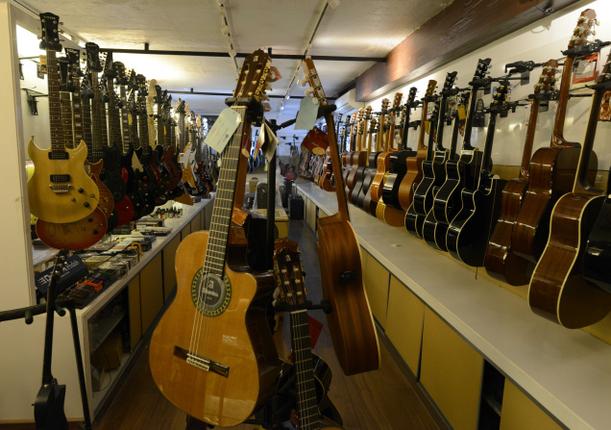
From hand-crafting musical instruments to providing a platform for people to learn music… here’s the story of Musée Musical
There’s a reason why the doors to the entrance of Musée Musical are tall enough for elephants to walk through. In fact, they served the very purpose: the building was used to shelter the elephants of Parthasarathy Temple. Today, it brims with guitars, violins and veenas that gleam from glass cabinets that line the walls. Situated in a cosy corner off Anna Salai, the music ‘salon’ was started by a Portuguese music-lover called Misquith in 1842. “He repaired and serviced pianos and organs back then,” recalls Kishore Das, the CEO of the company.
“Called Misquith & Co., it had 16 branches, including in places such as Lahore and the Nilgiris. But he sold them all, owing to ill health,” he adds. “Prudhomme, a Frenchman bought the Madras branch — he was the one who gave it the current name. His friend Amy Rozario, a pianist and music teacher, was the director; my grandfather Giridhar Das worked as the financial director.”
Towards the early 1940s, when the Independence Movement was at its peak, Amy decided to leave the country. That’s when Giridhar Das bought over the company. For the first time since its founding, Musée Musical had an Indian at the helm.

Today, seated in an office surrounded by hundreds of musical instruments, Kishore narrates the story of this “institution” that not only sold and taught music, but also made its own instruments. Musée Musical started to hand-craft its own instruments out of necessity. This was because the Government imposed a 330 per cent duty on importing musical instruments after Independence. The trend continued until 1996. During the intermittent years, the company was a haven for those who wanted to practise Western music. They rented out instruments at a nominal rate and provided a platform for those who wanted to learn music.
“Music is common to everyone. It cannot be divided by borders,” feels Kishore. “We’ve seen musicians suffer without access to instruments and wanted to make them available.” Today, they continue to make their own instruments, although on a small scale. “We’ve been an examination centre for the Trinity College, London, since 1901,” he adds.

The aisles of the store have seen ordinary men and women walk in as starry-eyed lovers of music and walk out as geniuses after years of training: think Ilaiyaraaja and A.R. Rahman. Kishore remembers seeing a young Ilaiyaraaja come to their store on foot all the way from Mylapore. “He went through a lot of hardship to learn music,” he says. “For me, the best thing about being in this field is that over the years, we’ve shown people that music can also be a career,” says Kishore. “We’ve been working with the Government and educational institutions towards that.”
Years of hosting musicians and musical instruments has changed something in the quaint building. It clings to us as we walk out through the elephant doors. You can’t exactly name the feeling — it’s a mix of an inexplicable calm and awe.
source: http://www.thehindu.com / The Hindu / Home> Features> Metroplus> Society / by Akila Kannadasan / Chennai – June 21st, 2016